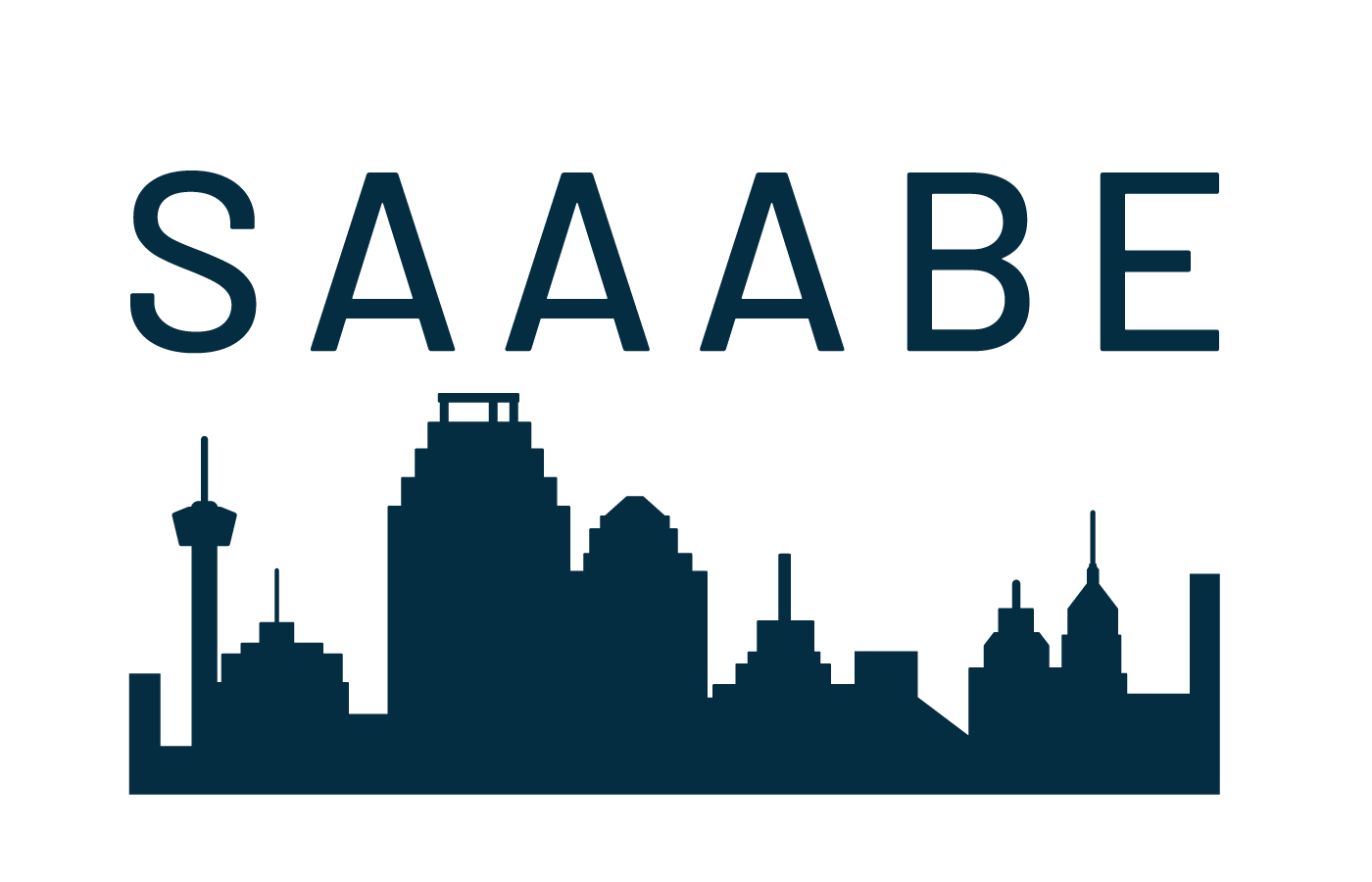Welcome and Board Member Introductions
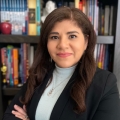 Dr. Xóchitl Anabel Rocha
Dr. Xóchitl Anabel Rocha
Keynote Session: Dr. Xóchitl Anabel Rocha
Vendor Visit
 Fabiola Garcia
Fabiola Garcia
Conciencia fonológica y fonética
 Shantell Colebrooke
Shantell Colebrooke
Cultivating and Creating a Culturally Responsive Safe Space
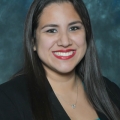 Dr. Mónica Medina
Dr. Mónica Medina
Uno, dos, tres fases hacia la biliteracidad: A sequence for Early Childhood Biliteracy
 Dr. Mario Ferron
Dr. Mario Ferron
El Futuro es Hoy: The Impact of Leadership, Meeting Dual Language Program Biliteracy Expectations.
 Summit K12
Summit K12
Let's Give Them Something to Talk About: Empowering Student Discourse
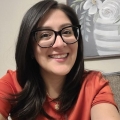 Elda S. Perez
Elda S. Perez
Lotta Lara en los salones duales pero en Monolingual también.
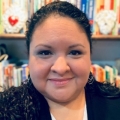 Genevie C. Rodríguez-Quiñones
Genevie C. Rodríguez-Quiñones
My Name, My Story: Building Community and Unpacking Identity Utilizing Multicultural Texts
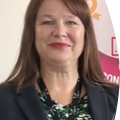 Jane Driver, United Kingdom
Jane Driver, United Kingdom
Supporting Bilingual Learners in Mainstream Secondary Education - a UK Perspective
(Hybrid International Presentation)
This presentation will give an overview of the current situation in the United Kingdom related to the education of bilingual students, with a particular focus on migrants who are learning English as an Additional Language (EAL) in mainstream education.
The session will present a case study detailing how a range of interleaving strategies can be implemented to support newly-arrived migrants in accessing learning and integrating socially into monolingual English-speaking education. It will describe how Content and Language Integrated Learning (CLIL) ideas together with trauma-informed and dyslexia-friendly practices were used to create PEALit (Prepare for English as an Additional Language and Literacy), a pedagogy to support migrants and hard-to-reach groups who may present with linguistic barriers to learning, as well as literacy deficiencies in their home languages.
Additionally, the session will also present how a whole-school focus on global citizenship through celebrating linguistics and cultural identity can contribute to a richer environment for learning for all students, as well as developing a sense of curiosity for language learning and pride around individual and collective heritage.
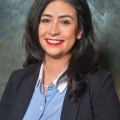 Yerania Carrasco
Yerania Carrasco
Using Thinking Routines To Honor, Build and Deepen Student's Funds of Knowledge and Identity
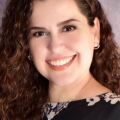 Karina Chapa
Karina Chapa
Celebrating the 3Bs: TABE’s Seal of Biliteracy Trajectories
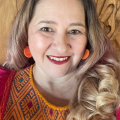 Dr. Claudia Treviño García
Dr. Claudia Treviño García
¡Celebrando nuestra comunidad y cultura en el currículo!
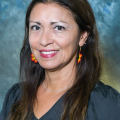 Michelle Camacho
Michelle Camacho
Cómo fomentar logros académicos en el aula dual de secundaria
 Brenda Gonzalez,
Brenda Gonzalez,
Elevando el Poder de Padres Inmigrantes en Nuestras Escuelas/Elevating Immigrant Parents’ Power in our Schools
Our newly arrived, undocumented emergent bilingual students and mixed-status families (in which at least one family member is undocumented) face toxic stress due to their immigration status, which drastically impair their sense of safety, socioemotional well being and academic success in our schools. They experience the constant fear of deportation, persisting language barriers, the lack of federal aid available to them due to their status, among countless other barriers – which make it challenging to learn and thrive in school spaces. The presence and anticipation of immigration enforcement, for example, directly impact students’ socioemotional well-being and academic outcomes, with 85% of students expressing fears at school, 79.6% increased behavioral problems, 64.7% indirect effects on the school climate, 58% increased absenteeism as found in a 2019 Harvard Policy Brief (Ee and Gándara, 2019). Moreover, deep learning and engagement from our emergent bilingual families can only occur when they are cognitively and emotionally engaged with the material before them, which is dependent on interacting in a safe space (Romero, 2015). It is also critical to highlight that the poverty rate for undocumented communities across the US stands at a staggering 20%, according to the Center for Migration Studies. Along with persistent immigration anxiety, our students and family members absorb the immense responsibility of building their academic future to undo cycles of generational poverty.
Schools have the responsibility to ensure all students, regardless of immigration status and language ability, feel safe and welcome. However, as a result of the silence around and misinformation about the topic of immigration in our schools, this is far from the reality for the undocumented emergent bilingual community. Many of our undocumented emergent bilinguals are in bilingual, dual language and ESL classrooms. As an instructional best practice it is a must to provide an inclusive safe space for learning (Guajardo et al., 2012). This can be achieved through utilizing a sociocultural perspective, 3rd pillar of Dual Language, in instructional daily activities, student rigorous research inquiry, and inclusive ideas into student space. Sharing educators’ experiences with emergent bilingual students and families builds relationships and empathy that facilitates a safe and inclusive educational space for the educator, student, and parents/guardians (Hernandez, 2023).
Objectives:
- Participants and educators will learn how to provide an inclusive learning environment for undocumented emergent bilingual students and parents in a dual-language setting through a community partnership, ImmSchools.
- Gather effective strategies and practices to foster inclusivity and a sense of belonging in schools for undocumented emergent bilingual students and parents. These strategies include: providing resources in multiple languages, community outreach, parent pláticas, learning sessions, and exposure to higher education possibilities as a way to navigate the public school system.
- Gather effective strategies and practices that promote parent engagement, agency and empowerment, specifically for parents and caregivers of undocumented emergent bilingual students.
Co-Presenter(s)
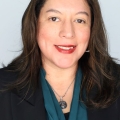
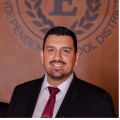 Joseph Rodriguez
Joseph Rodriguez
Exploring an asset-based approach to transforming the newcomer educational experience: listening to their stories and amplifying their voices.
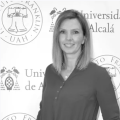 Angela Sauciuc, Spain
Angela Sauciuc, Spain
Dual Pathways: Teach & Learn in Spain Program
(Hybrid International Presentation)
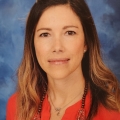 Alejandra Benitez
Alejandra Benitez
Science of Reading in a Dual Language Classroom
Participant will understand how important it is to have a strong early Spanish literacy program in order to have fluent readers that can comprehend what they read. They will also learn about the 5 Pillards of literacy and the Scince of Reading.
A clear research-based scope and sequence will be presented to group for how, when and why to introduce literacy skills and concepts for the Spanish language.
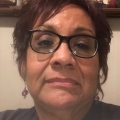 Oralia Lara-Vargas
Oralia Lara-Vargas
Special Education and Bilingual? Now What?
Vendor Visit
Award Ceremony Luncheon
Vendor Visit
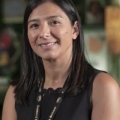 Emily Francis
Emily Francis
Keynote Session: Emily Francis
 Dr. Alma Rosa Martinez
Dr. Alma Rosa Martinez
"Bilingual Bridges: Building and Expanding Dual Language Academies for Tomorrow's Global Leaders"
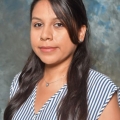 Janelly Ramirez
Janelly Ramirez
Bridging the Home and School: How to Implement Culturally Relevant Family Projects
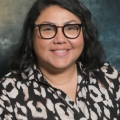 Berenice Coronado
Berenice Coronado
Culturally Sustaining Practices Across Contents and Grade Levels
 Dr. Kathryn Henderson, USA & Mexico,
Dr. Kathryn Henderson, USA & Mexico,
International Collaboration for Study Abroad and Bilingual Teacher Preparation, Mexico, USA
(Hybrid International Presentation)
This bilingual presentation highlights an innovative partnership between The University of Texas at San Antonio (UTSA), the University of Guadalajara, and Thomas Jefferson Institute Valle Real located in Guadalajara, focused on enhancing bilingual teacher preparation. Through collaborative efforts, the initiative aims to foster cultural competence, linguistic proficiency, and pedagogical excellence among future educators. Drawing from research insights and practical experiences, the presentation delves into the objectives, methodologies, challenges, and outcomes of this international collaboration. It emphasizes the unique contributions of each partner institution, including the exchange of innovative practices, resources, and expertise in bilingual education. Moreover, the presentation explores strategies to address logistical, institutional, and cultural barriers inherent in cross-border collaborations, facilitating effective communication, coordination, and resource sharing. It also discusses the transformative impact of this collaboration on the professional development and global perspectives of pre-service teachers. Ultimately, this presentation seeks to inspire educators, policymakers, and stakeholders by showcasing the potential of international partnerships to enrich teacher preparation programs and promote intercultural understanding in bilingual education, nurturing culturally competent and globally minded educators.
Co-presenters
Dr. Claudia Garcia (UTSA)
Dr. Lucio Flores Payan (UDJ)
Dr. Diana Mercedes Hernandez Corona (UDJ)
Marisol Murillo (ITJ Valle Real)
Megan Randall (ITJ Valle Real)
Co-Presenter(s)

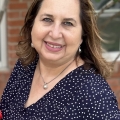 Linda Espinoza
Linda Espinoza
Preview View Review for EBs in all Content
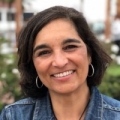 Aloise Miller
Aloise Miller
QSSSA: The Essential Method for Structuring Conversations in All Classrooms.
 Dr. Adela Flores
Dr. Adela Flores
¡Todos somos escritores! We are all writers at heart!
Participants will briefly look at a study (Flores 2022) that took place in an urban district in Texas with a total enrollment of approximately 66,000 students with ELs representing approximately 34.5% of the student population, with over 60% Hispanic enrollment and over 80% economically disadvantaged population. Cross tabulations indicate the ELs continue to underperform in the reading state standardized test when compared to their monolingual peers for grades 3-5. Further results indicate the higher a student's TELPAS proficiency is, the more likely they are to score higher in the STAAR reading test.
Participants will briefly review the four components of TELPAS (reading, writing, listening, and speaking) to determine which of these may need the most support and how all of these can be inter-supported through that which is determined to pose the biggest challenge.
Participants will have an opportunity to practice and walk away with differentiated hands-on strategies that will support EBs in the classroom to become proficient readers writers, listeners, and speakers all whilst developing a love for literacy.
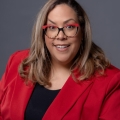 Lizdelia Pinon
Lizdelia Pinon
Voices United: Empowering Emergent Bilingual Learners through Policy Advocacy & Innovation
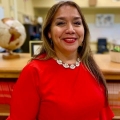 Adriana Bermea
Adriana Bermea
Adelante... Leading with Intention.
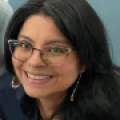 Jackie Zapata
Jackie Zapata
Cognates Unveiled: Leveraging Language Similarities for ESL Success
 Dr. Apolonio Trejo
Dr. Apolonio Trejo
English Learners in GT Programs: Su futuro es hoy y está en nuestras manos
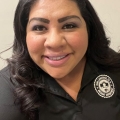 Verónica Sánchez-Sáenz,
Verónica Sánchez-Sáenz,
Enriqueciendo el bloque de biliteracidad
Co-Presenter(s)
 Carmen Cabrera
Carmen Cabrera
Entrelazando Corazones y Lenguas: La Importancia de la Educación Emocional en el Contexto Bilingüe
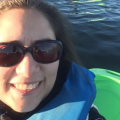 Carolina Ramirez, Canada
Carolina Ramirez, Canada
Multilingual Education in Canada
(Hybrid International Presentation)
 Tracey Maurer
Tracey Maurer
¡Qué Sabor Lotería in the Classroom!
 Sonia Galvan
Sonia Galvan
Tailoring Student Writing through Extended Constructed Responses
 Dr. Gilberto Soto
Dr. Gilberto Soto
